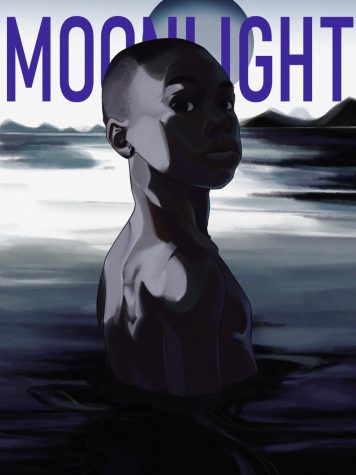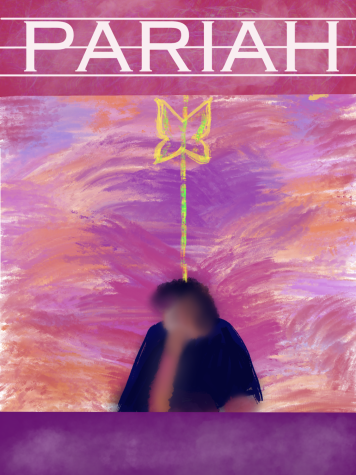Recommended films in honor of February’s Black History Month
February 23, 2022
The dichotomy between Black trauma and joy has arisen as a discussion of forms of resistance within Black representation. Stories of slavery, segregation and struggle sometimes overshadow the nuanced aspects of beauty and joy within Black communities across the country. The following three films, “Moonlight,” “Pariah” and “Tangerine,” highlight the complexities of the queer Black experience in light of February’s Black History Month, a period to recognize and honor the contributions and achievements the Black community has made throughout history.
These three films each have unique and outstanding aspects, whether it’s winning Oscar and Sundance Film Festival awards or being fully shot on an iPhone 5S, as they follow the journeys of characters understanding their identities and interpreting their emotions.
Depicting nuanced and dynamic perspectives, each film acts as an entry point to educating yourself about the Black experience and committing to uplifting Black voices not just during this month, but the 11 other months as well.
“Moonlight” (2016)

The 2016 film “Moonlight” made history as the first all-Black cast and LGBTQ+-related film to win an Oscar for Best Picture in 2017. The story follows Chiron, a young Black man growing up in Miami, through three stages of his life as he grapples with sexuality and identity. Dipped in quiet intimacy, “Moonlight” is a catharsis, a poetic painting of masculinity in a modern age. Through delicately rendered details, viewers become submerged in a breathtaking narrative that reshapes grief and numbness with glowing frames of light and color.
“Pariah” (2011)

Written and directed by Dee Rees, a Black lesbian screenwriter and director, and awarded the Excellence in Cinematography Award at the 2011 Sundance Film Festival, “Pariah” follows 17-year-old Alike in Brooklyn as she wrestles with her lesbian identity despite her mother’s disapproval. A poignant portrait of a coming-of-age, “Pariah” highlights quiet acts of power, with the movie ending in a scene of reading poetry, both sincere and raw.
“Tangerine” (2015)

Although it’s been a month since the holiday season, it’s never the wrong time to watch a Christmas movie. Famously shot on iPhone, “Tangerine” (2015) follows two Black trans sex workers as they set out to find a cheating boyfriend on Christmas Eve in Los Angeles. Gritty, vivid, raw, the film bonds sharp humor with tender emotion in its portrayal of characters where vulnerability fosters strength.


















![“[Building nerf blasters] became this outlet of creativity for me that hasn't been matched by anything else. The process [of] making a build complete to your desire is such a painstakingly difficult process, but I've had to learn from [the skills needed from] soldering to proper painting. There's so many different options for everything, if you think about it, it exists. The best part is [that] if it doesn't exist, you can build it yourself," Ishaan Parate said.](https://harkeraquila.com/wp-content/uploads/2022/08/DSC_8149-900x604.jpg)




![“When I came into high school, I was ready to be a follower. But DECA was a game changer for me. It helped me overcome my fear of public speaking, and it's played such a major role in who I've become today. To be able to successfully lead a chapter of 150 students, an officer team and be one of the upperclassmen I once really admired is something I'm [really] proud of,” Anvitha Tummala ('21) said.](https://harkeraquila.com/wp-content/uploads/2021/07/Screen-Shot-2021-07-25-at-9.50.05-AM-900x594.png)







![“I think getting up in the morning and having a sense of purpose [is exciting]. I think without a certain amount of drive, life is kind of obsolete and mundane, and I think having that every single day is what makes each day unique and kind of makes life exciting,” Neymika Jain (12) said.](https://harkeraquila.com/wp-content/uploads/2017/06/Screen-Shot-2017-06-03-at-4.54.16-PM.png)








![“My slogan is ‘slow feet, don’t eat, and I’m hungry.’ You need to run fast to get where you are–you aren't going to get those championships if you aren't fast,” Angel Cervantes (12) said. “I want to do well in school on my tests and in track and win championships for my team. I live by that, [and] I can do that anywhere: in the classroom or on the field.”](https://harkeraquila.com/wp-content/uploads/2018/06/DSC5146-900x601.jpg)
![“[Volleyball has] taught me how to fall correctly, and another thing it taught is that you don’t have to be the best at something to be good at it. If you just hit the ball in a smart way, then it still scores points and you’re good at it. You could be a background player and still make a much bigger impact on the team than you would think,” Anya Gert (’20) said.](https://harkeraquila.com/wp-content/uploads/2020/06/AnnaGert_JinTuan_HoHPhotoEdited-600x900.jpeg)

![“I'm not nearly there yet, but [my confidence has] definitely been getting better since I was pretty shy and timid coming into Harker my freshman year. I know that there's a lot of people that are really confident in what they do, and I really admire them. Everyone's so driven and that has really pushed me to kind of try to find my own place in high school and be more confident,” Alyssa Huang (’20) said.](https://harkeraquila.com/wp-content/uploads/2020/06/AlyssaHuang_EmilyChen_HoHPhoto-900x749.jpeg)








